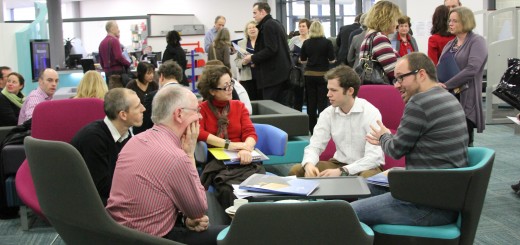Digital Accessibility: Enabling Participation in the Information Society
A free, online course on Digital Accessibility starts next Monday (6 February). The course has been created by University of Southampton through the FutureLearn platform and is being led by Professor Mike Wald and E.A. Draffan.
This course will help you to understand how those with sensory, physical and cognitive impairments may be disabled by barriers encountered when using digital technologies. The course will highlight how the use of accessible and inclusive design can help overcome many of these difficulties.
Why should we care about digital accessibility?
With a better understanding of users’ needs, technologies can be developed to be both accessible and meet legal requirements to provide a more inclusive environment.
On this course, you will discover how you can make an important difference to the lives of anyone who is elderly or has a disability. It is suitable for:
- web development, design or marketing professionals, or anyone who creates content or specifies, designs, builds, tests, evaluates, uses or buys technology;
- employers, who can discover how accessible technologies can increase the market for their products or services, or enhance the productivity of their employees;
- and disabled and elderly people, who want to understand why some technologies may be causing problems, and how it is possible to help others understand these problems.
You will learn how technology can help at home, study or work if you or somebody you care about becomes ill or is disabled.
Accessibility in education
It is imperative that teaching approaches and resources are accessible to all students and that digital resources provided as part of a course through Moodle have been designed in a way that enables students with a variety of different needs to use them. This may often require providing the same resource in multiple formats so that students have the choice to use resources in the preferred way that supports their learning.
We’ve blogged extensively on ways to make accessible learning over the last few years and the posts below will help you develop your own practice in relation to creating accessible learning:
- Getting Started with Accessibility and Inclusion
- Universal Design for Learning (UDL)
- Creating Accessible Documents and Presentations
- Accessibility in Moodle & Mahara
- Learn with Lynda: How to Make Accessible Learning
- Moodle Monday: The Basics – Text Editor, Accessibility and Labels
If you have any questions, need some advice on creating accessible resources or want to share good practice please feel free to comment below or contact us at tel@yorksj.ac.uk.
Helen Varley, York St John’s Assistive Technology Trainer, can also provide advice to both students and staff on the use of specific assistive technology packages.
Blog post featured image courtest of Mark Deckers on Flickr, licenced under a Creative Commons licence.


